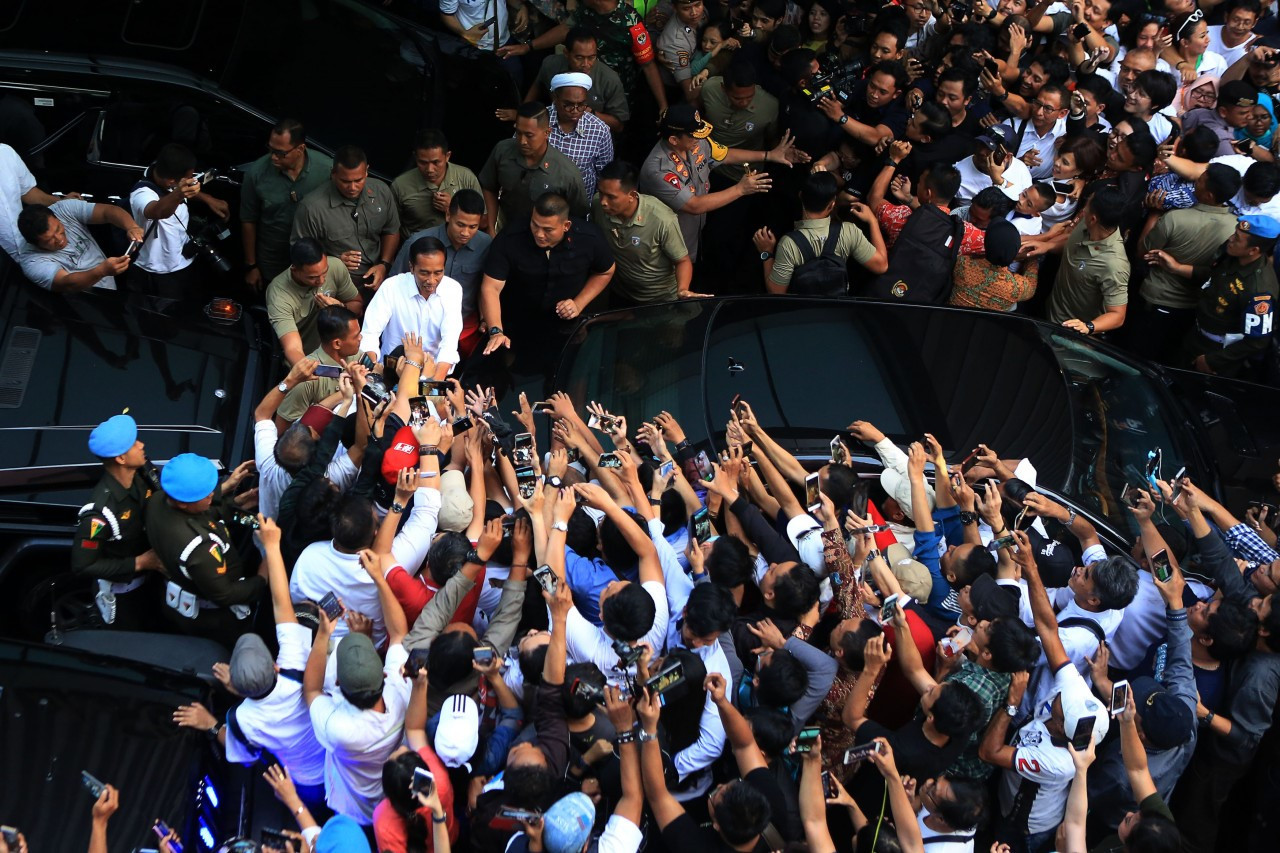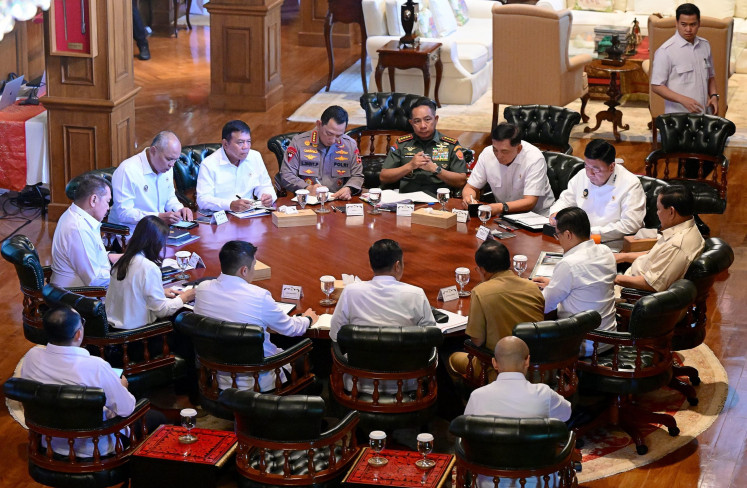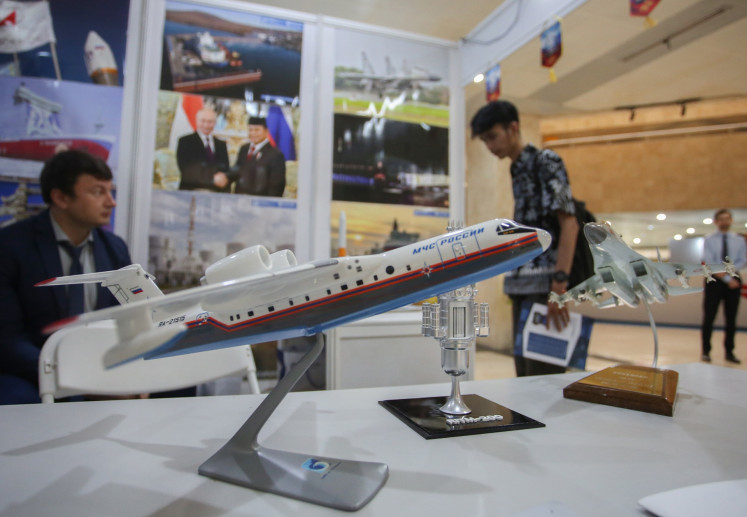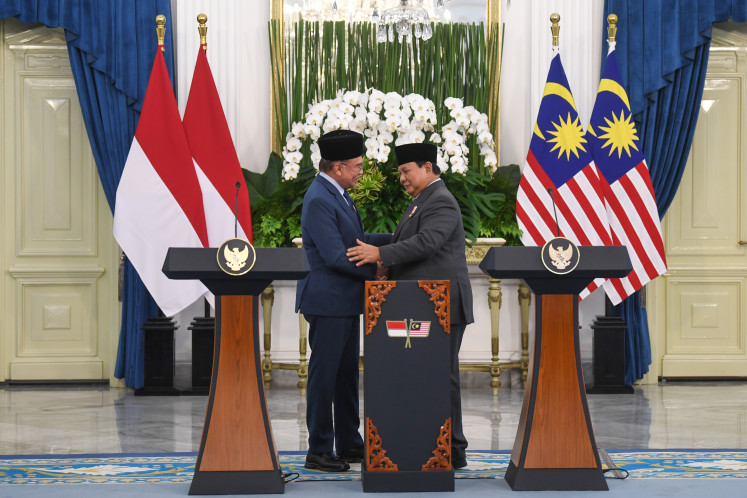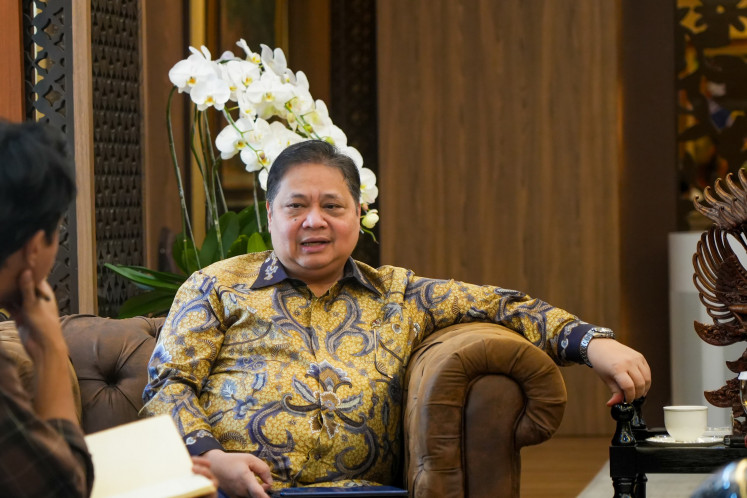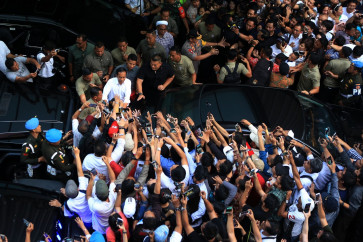Popular Reads
Top Results
Can't find what you're looking for?
View all search resultsPopular Reads
Top Results
Can't find what you're looking for?
View all search resultsAnalysis: How powerful is Jokowi in deciding the 2024 outcome?
Speaking on Nov. 26 at the gathering at Gelora Bung Karno Stadium, Jokowi said these were traits of a leader who had spent their time thinking about the wellbeing of the country.
Change text size
Gift Premium Articles
to Anyone

When President Joko “Jokowi” Widodo told his diehard supporters to vote for a candidate with “forehead wrinkles” and “white hair” in the 2024 presidential election, almost everyone concluded that he was referring to Central Java Governor Ganjar Pranowo, whom all surveys put as one of three most popular public figures to succeed him.
Speaking on Nov. 26 at the gathering at Gelora Bung Karno Stadium, Jokowi said these were traits of a leader who had spent their time thinking about the wellbeing of the country. Jokowi may have been speaking cryptically, but only 54-year-old Ganjar fits the criteria of having “forehead wrinkles” and “white hair.”
The other two candidates’ hair have yet to gray or they have dyed their hair to keep a youthful look, but both are in the running and have the support of at least one major political party. Former Jakarta governor Anies Baswedan, one year older than Ganjar, has the support of the National Democratic Party (Nasdem), while 71-year-old Defense Minister Prabowo Subianto has the support of the Gerindra Party, which he founded and chairs. Despite his huge popularity, Ganjar has yet to secure support from any political party.
When Jokowi was elected for the first time in 2014, he was 53 and hardly had any gray hair. Few supporters thought Jokowi may have been referring to himself rather than a successor in 2024.
Whatever Jokowi meant to say, last month’s gathering, which filled the stadium to capacity, was a show of force by him and his supporters, a repeat of the massive political rallies he held toward the end of the election campaigns in 2014 and 2019. Although he is constitutionally barred from running for a third term, he still has some clout, probably enough to determine the 2024 outcome.
How much real power and influence he has is open to debate. His statement, which many take as a veiled endorsement for Ganjar, created excitement among his supporters and anxiety within the Indonesian Democratic Party of Struggle (PDIP), the party to which Jokowi and Ganjar belong.

Anyone else in his position, with less than two years in power and no chance of reelection, would be a lame duck president by now. Jokowi is not one by any measure.

